The U.S. is doubling the cost for visitors from close allies and security partners to come to the country. The price of an “ESTA” or Electronic System for Travel Authorization which passengers entering the United States on a visa waiver is going from $21 to $40. And that doesn’t reflect rising costs – the fee is currently $17 to fund travel marketing for the U.S. as a destination, and $4 for processing. The reconciliation bill also cut funding to Brand USA by 80%.
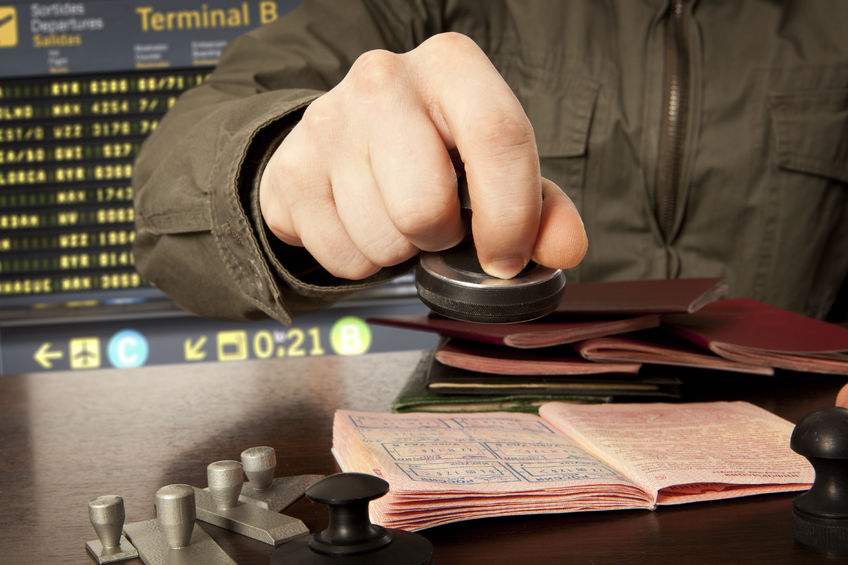
ESTA Fees Going Up For Visitors
The One Big Beautiful Bill Act raises the price of an ESTA from $21 to $40. That’s the fee to be screened and granted permission to travel to the U.S. for business or tourism. The new breakdown for this fee is:
- $10 for administering ESTA
- $13 straight to the general fund (which was scored for the bill as deficit-reducing)
- $17 for the Travel Promotion Fund – but with transfers capped at $20 million and the excess swept to the general fund. The balance becomes a ‘tourism tax’ rather than a marketing fee.
ESTA is required for visitors from 42 countries who can travel to the U.S. without a visa. That includes much of Europe; Australia and New Zealand; Qatar; Japan, Taiwan, South Korea and Singapore among others. (An ESTA isn’t needed for most Canadian or Bermudan visitors, who have separate entry arrangements.)
An ESTA is valid for two years per approval. The fee is a travel tax hike on millions of international tourists. This administration has not been friendly towards foreigners traveling to the United States, however the clear focus of this change is penalizing legal visitation.
While seemingly small relative to the cost of international travel, a family of four will pay $160 (versus $84 previously). Higher entry costs, combined with prolonged visa interview waits and the perception of strict U.S. entry policies, further reduce the appeal of the U.S. as a destination. Overall this change is expected to generate $3.5 billion in general fund revenue over five years.
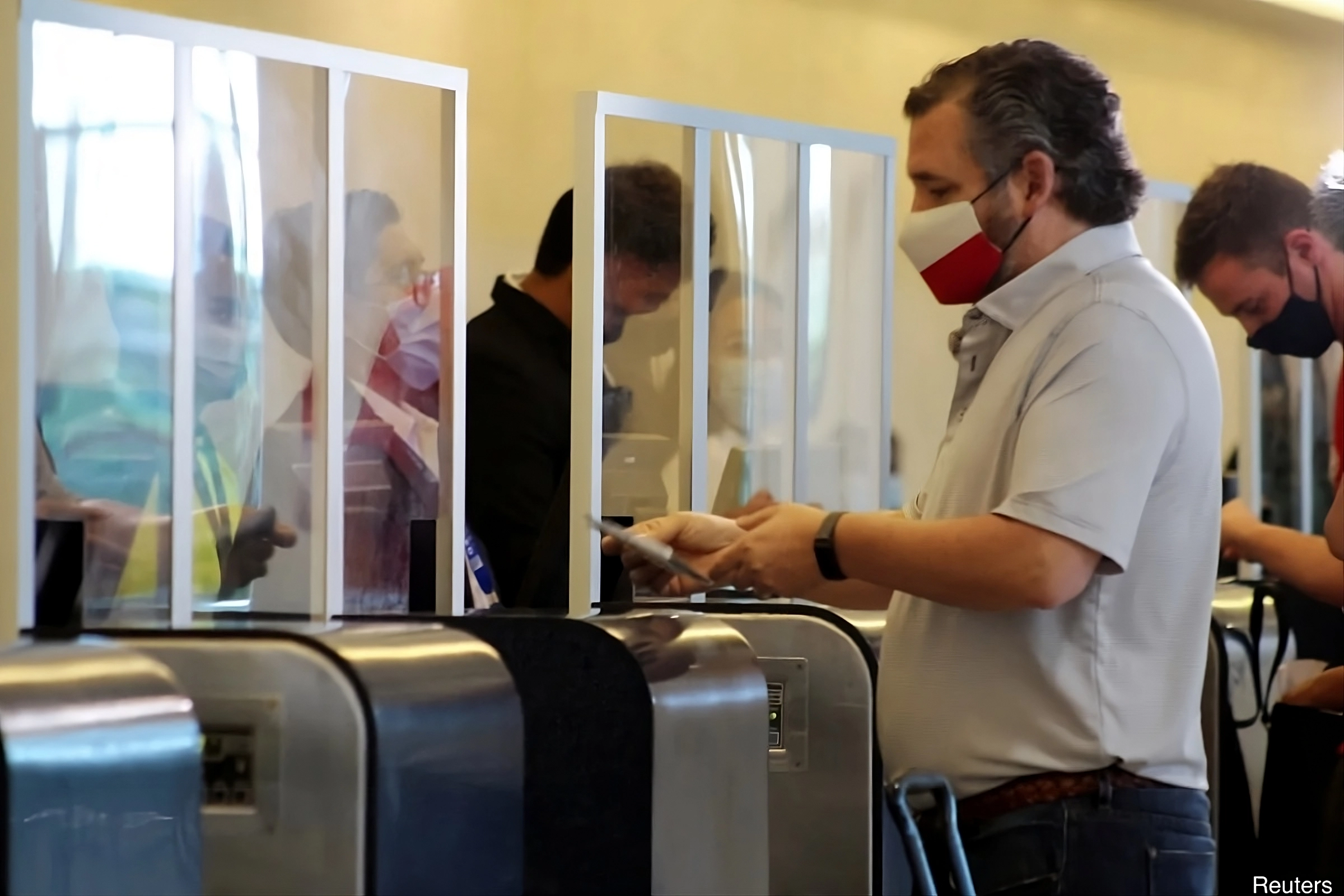
Travel Marketing Gets Cut 80%
The bill reduces by federal funding for the Corporation for Travel Promotion (Brand USA) from $100 million to $20 million per year, an 80% or $80 million cut, through FY2027.
The mission of this travel promotion group is to market the United States as a travel destination, and it historically matched private sector contributions with federal funds. There is no mandated reduction in private sector contributions to this entity.
Brand USA was created by the Travel Promotion Act of 2009 and federal funding has come from ESTA fees (which are going up!). It was how ESTA proponents could claim that charging visitors to come here promoted visitors coming here. (Normally when you tax something, you get less of it.)
Many state and local tourism boards squander millions and dodge accountability. I’m genuinely not clear on the effectiveness of Brand USA. But it’s pretty clear that promoting more people coming to the United States does not align well with this administration’s priorities.
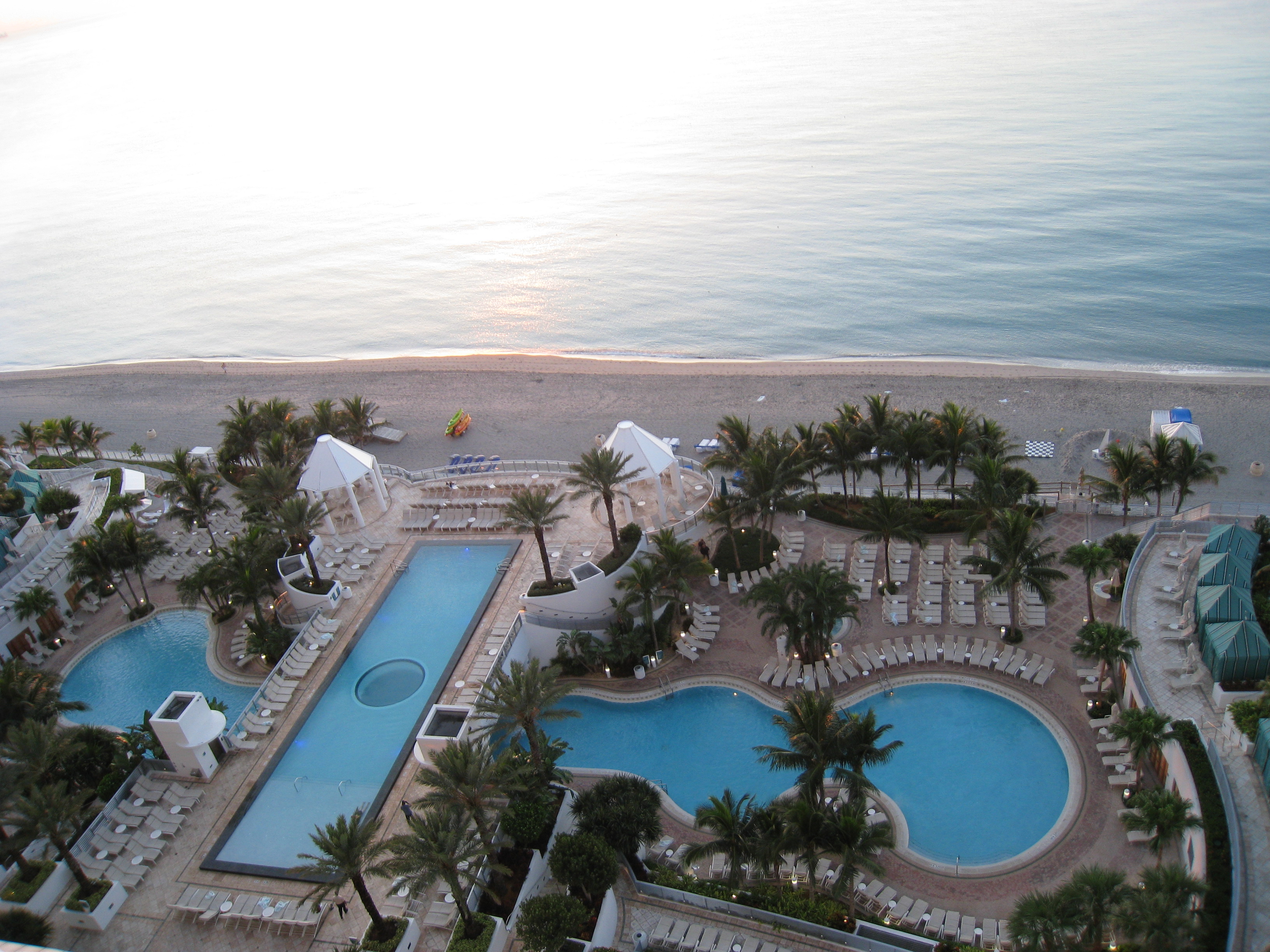
D.C. Airports Have To Send More Money To The Federal Government
The federal government owns Washington’s Dulles and National airports, and leases them to the Metropolitan Washington Airports Authority.
Currently, the airport authority pays about $7.5 million a year in rent based on a 1987 lease with a $3 million base rate plus inflation adjustments. This is generally considered below-market rent. The airport authority and Department of Transportation just signed a lease extension in 2024 running through 2100 on the same payment terms.
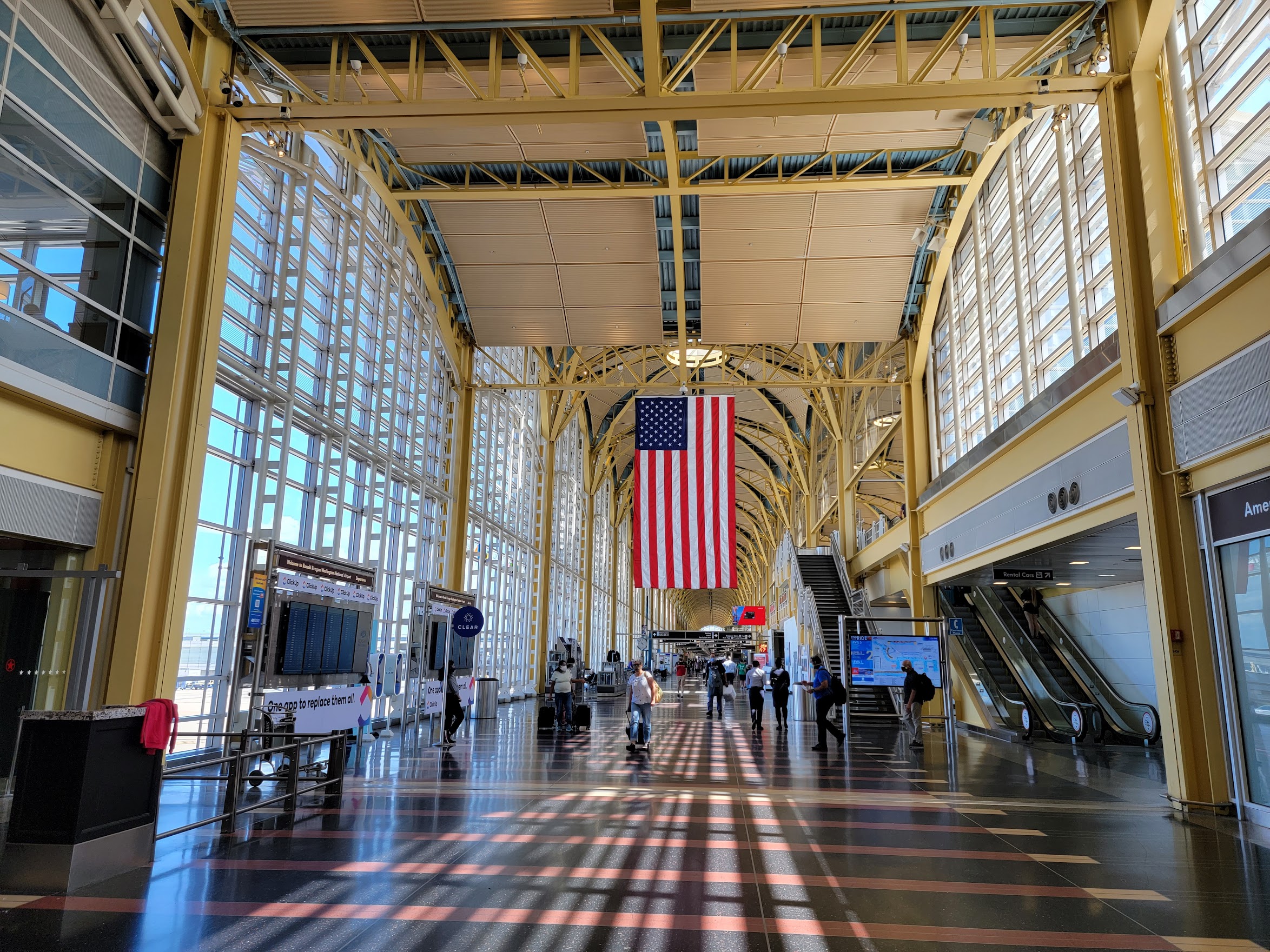
Section 40007 of the One Big Beautiful Bill Act mandates that starting in 2027, MWAA “must pay $15 million per year (adjusted annually for inflation)” to the federal government for the two airports, and the lease must be renegotiated at least every 10 years thereafter. Each renegotiation must ensure the payment is not less than $15 million in 2027 dollars. The bill overrides the lease extension signed last year.
The change was inserted during committee drafting in the Senate by Ted Cruz (R‑TX), chairman of the Senate Commerce, Science & Transportation Committee as one measure to help pay for the bill. Senator Mark Warner (D-VA) offered a floor amendment directing the new lease revenues to airport safety projects, but it failed on a 50‑50 vote. (Directing the spending of the revenue would not help pay for the bill!)
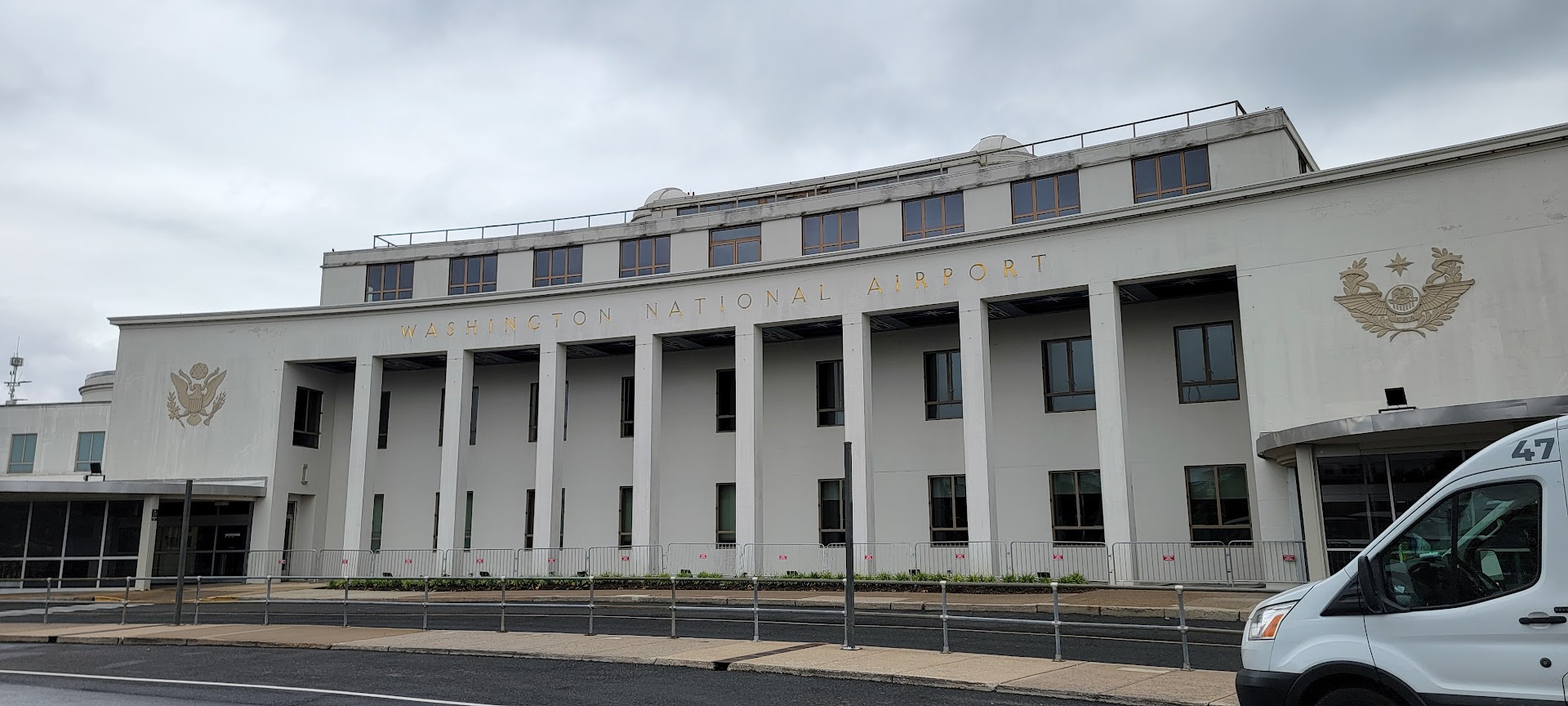
The airports generated $849 million and the Dulles Corridor Enterprise Fund (toll road) generated $206 million in 2023, for $1.055 billion, not including investment gains, passenger facility charge transfers, federal grants, or capital contributions. The agency’s total inflows were over $1.3 billion for 2023.
Currently, lease cost is less than 1% of airport revenue. That will go up to around 1.5% and represents an increased expense of around 35 cents per emplaned passenger. Government-run airports which receive federal grants do not make a profit per se – they invest revenue remaining after funding operations in capital projects. So this change redirects a few million dollars each year from capital investment in the airports to the U.S. Treasury. Of course how well run and how well the airport authority has invested funds in the past has come under significant fire time and again.
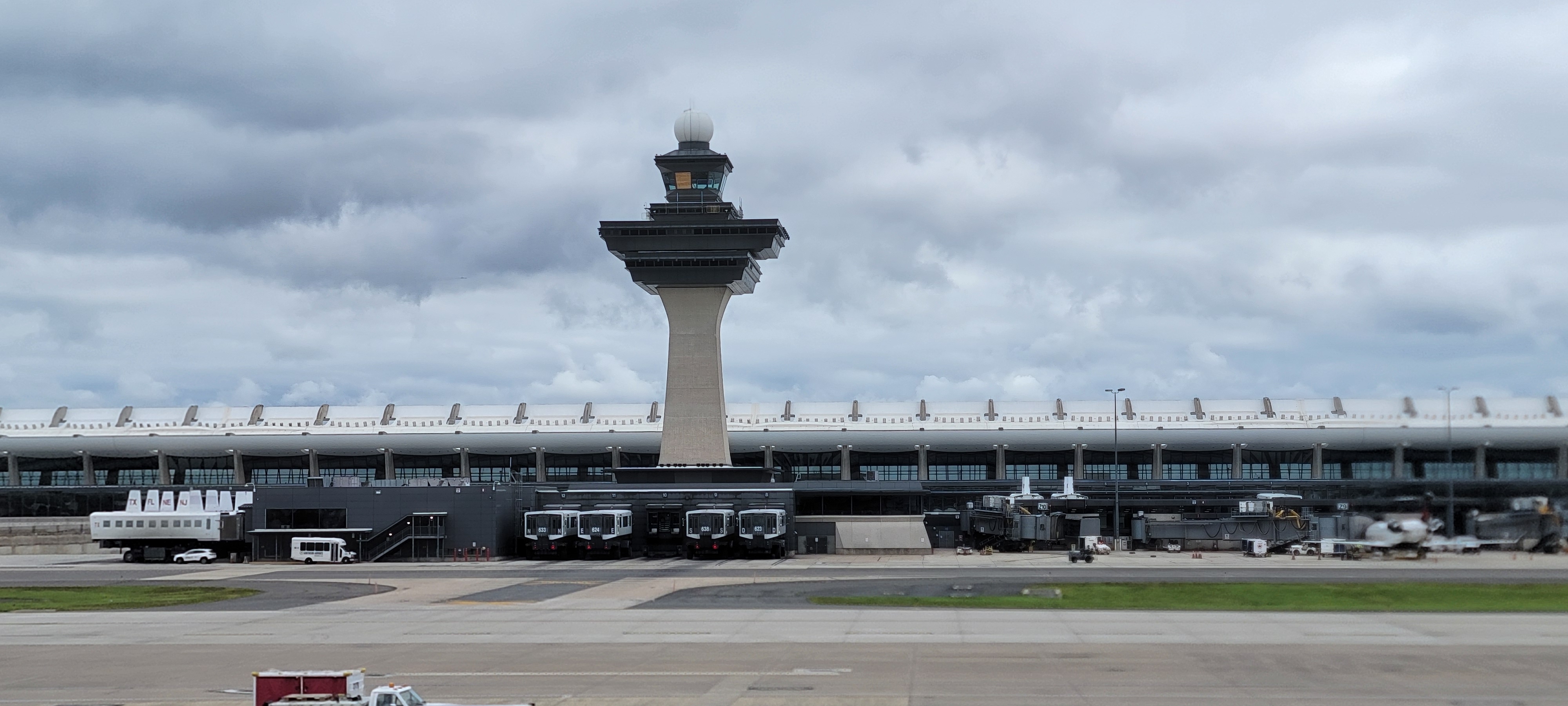
National Airport dates to 1941 and Dulles airport to 1962. They were built and run by the Civil Aeronautics Administration and later by the FAA. The Holton Commission was formed in 1984 to explore transfer of the airports to local control. This culminated in the Metropolitan Washington Airports Act of 1986 which authorized the Departmnet of Transportation to lease both airports to the new Metropolitan Washington Airports Authority.
In 1991, the Supreme Court struck down the 9-member Congressional Board of Review that could veto airport authority decisions under separation of powers (Metropolitan Washington Airports Auth. v. Citizens for the Abatement of Aircraft Noise).
(HT: Daniel)


I donno ‘bout y’all, but I sure do feel ‘great’ again… yee… haw…
The bill that keeps on giving.
@drrichard — Socialism for the rich!
At least all the elites on both sides get away with all the pedo-stuff. Sheesh. Yeah, it’s ‘fun’ (and sad) to throw in a ‘he didn’t x himself’ reference these days; though, man, it sure would be nice to see actual justice for the victims…
Anyhoo, tired of all the ‘winning’ yet?
Sure does feel ‘right about everything’ doesn’t it… also, good riddance to Medicaid, Medicare, and eventually Social Security, I guess. Darwin is back, babeee!
If $40 stops someone from visiting we don’t want them here anyway. Such a trivial amount Gary. Quit making mountains out of mile hills.
Awesome news! The bill that favors US citizens over others. Lower taxes for most Americans offset by higher fees for foreign visitors.
I think this is what the majority of Americans voted for.
@AC & @David P — Ah, I see you both hate the economy. Cool. Cool, cool. Enjoy that. Oh, yeah, and sooo much revenue from these fees… good one!
@1990 – we need to cut the government handouts. Shouldn’t have a nanny state. Too many with their hand out. Get to work and make something of yourself. The US was built on individual achievement not handouts. Frankly we give away too much to those that don’t contribute to our great country.
@AC — Couldn’t agree more. Let’s start with all the billions in corporate subsidies. That’s real money. None of this token stuff that is ‘red meat’ for the base, but doesn’t actually solve anything. You wanna fix the deficit and the debt? Stop giving handouts to oil and gas, big agriculture, big pharma, big everything. Start helping the workers and small businesses. Then, let’s talk, son.
@1990 – I love the economy and so does Wall Street. My investment portfolio is up significantly and I have enough experience to hedge and benefit regardless of what it does in the future. I’ve got mine (as do the next couple of generations). Others can do the same with hard work and by becoming more knowledgeable about investments
@AC — You think ‘Wall Street’ is the economy? Sir, this is a Wendy’s… consumers are the economy, and many of His policies are gonna crucify the poor and middle class who actually spend (not merely hoard) their money. ‘Dare to dream a little bigger, darling.’
@1990 – I’m not your damn “son” so take those words out of your mouth. You and your socialist ilk need to just go away. As for business incentives they, like tax treatments, have bottom line economic benefits. Giving money to parasites of society that can’t get by on their own doesn’t. Bring back debtors prisons please
No one really wants these fees and spending cuts, but they’re needed. We’re $37 trillion in debt (about $300,000 per income tax-paying American), and haven’t made a net payment against the owed capital since 2001. The Social Security trust fund runs dry in 2033 or 34, and the Medicare trust fund a year later. Do you think the government will reduce benfits? Nope, they’ll borrow more. What about taxing all those billionaires? If we confiscate every penny owned by our ~1000 US billionaires, the debt will fall 12-14%. They’re just aren’t enough wealthy folks to get the job done by taxation, it would require increased middle class taxes and fees and reduced lower income class benefits. We’re in a deep and ugly hole. Getting out will be painful. Not getting out will be worse.
@1990,,, you forgot the leaches on welfare, ssi, wic, rent checks, utility checks, food stamps. Trust me, I worked in a business that dealt with this stuff. Fraud is rampant as it is with the VA handing out disabilty checks to healthy people.
@AC — Alright, papa. Remember, this is a roast. Call me whatever names you wish; I’m kinda ‘into it.’ As for the history of bankruptcy, indentured servitude and the rest, you know nothing, sir. A day in the life of that Dickensian world would wreck you. Be wary if he actually goes after the independence of the Fed, because messing with Central Banks is how currencies fail.
David P: regardless of how small the increased fees are in reality, the perception is that the USA is punishing visitors – with fees, longer waits in line, possible jail time for no reason, being denied entry in the US – is going to reduce tourism to the US.
The majority of Americans voted for a reduction in government spending and waste. We didn’t vote for a reduction in our ‘growing’ economy,
1990 – Wall Street is my economy. Retired after 49 years as an executive with a nice portfolio that I manage. All I care about is me and mine. The poor and others are their own issue, not mine
What is the payback on tourism marketing r Brand USA? I wonder if anyone ever asked.
$40 for ESTA every 2 years is chicken feed.
@Larry David Bradley — You had me at ‘Larry David.’ *Curb Your Enthusiasm tuba theme plays* If you think the petty theft is the problem, then please continue to ignore the white collar crimes, like PPP abuse, insider trading, offshoring, etc. Again, that’s where the big money is, and we’ve given up on enforcement. Instead, we get the relative distraction of ‘look over here at these brown folks!’ Please, by all means, let’s go enforce our laws, again. All of them. Including anti-trust. Teddy Roosevelt was onto something. Regulatory capture is another farce!
@AC — My dear fellow capitalist, I, too, have appreciated my personal good fortunes, and do also enjoy a reasonable return on investment; yet, I also breathe the same air as the rest of us mere mortals, and prefer a bottom-up, stronger ‘floor,’ as opposed to a ‘top-down,’ ‘let them eat cake,’ approach to society. Recall the healthcare executive’s fate. Let’s treat our people better, so they don’t come to our mansions for a ‘visit.’ Unions were the compromise during the last Gilded Age; I’d like to skip the vigilante part, and go to a better balance of the equities. Or, just ignore all that history nonsense. Psh, it’s not like it ever repeats in any way… the Roman Empire last FOREVER!
@ Gary — Gotta fund the Orange Grift somehow!
I’m enjoying the ‘spice’ here. Now, where’s doctor @Jake? He usually has a biting remark, like, ‘take your meds!’ Or, @Mike P, to espouse the ‘merits’ of anarcho-capitalist libertarianism, along with a quote from Twain (just, please, enough with that Uncle Tom Sowell; we know, he’s nearly 100!)
@Mike Hunt — We await your socially moderate, economically conservative viewpoint! Or, did you say something naughty, and end up in ‘automatic moderation.’ It gets us all sometimes…
I don’t ever want to hear another Republican talk about fiscal responsibility. They are hypocrites, with neither honor nor patriotism.
I hope MWAA sues. Congress can’t just override an executed lease.
@mark f
Given that the situation is a dire as you say, I assume you will agree the tax cuts are not appropriate at this time, correct? It should be an all hands on deck situation. The fact that 100% tax on billionaires won’t solve the deficit is not an argument to give them tax cuts.
@AC:
When the revolution happens, you, and people like you will be the first ones to find themselves standing between a wall and a squad of you-know-what.
@L737 — I believe it was the great poet Philip J. Fry, who once said: “True, but someday I might be rich. And then people like me better watch their step.”
@Thumper — No, no.. don’t you realize… @AC is ‘one of the good ones.’ Also, I’ve been told that ‘the revolution will not be televised’; probably live-streamed, actually.
All taxpayers paid to increase tourism so las vegas could hike up fees. No american taxes should go to increase tourism so las vegas and the like could just increase prices. It was simply dumb to find it in the beginning.
I recognize that the ESTA fee increase is just a bit more than nominal. But it’s another reason for Europeans to not come and spend their money here. And there is an economic impact to that.
My relatives are pretty much saying “There’s no way I’m coming to visit you” due to border hassles and our tariff policy. ESTA is just icing on this cake.
I suspect that the cost for ETIAS will be higher as a result as well.
I strongly suspect that the total economic impacts of our “new” legal visitation polices negate whatever new tax revenues will be generated by the fees.
what will that big beautiful turd think of next? Does the fee only apply to people of color?
@AC — I got another one: “My stocks have never been higher!” –Some guy in September 1928.
Drrichard says:
Sort of like a suppository.
I understand the political necessity of packaging together multiple items into legislation, so each special interest knows they’re getting their tit for the tat. But, as we see, this massive one has so many “huh?” features. I’m looking to get a new New Zealand eta. It’s only NZ$17 to apply, but the NZ$100 mandatory IVL fee makes it US$70 for two years. I’m OK with that.
But, frankly, I’d feel better if the fee schedule was made in consultation with travel experts and economists, not lawyers in Congress throwing darts.
It’s important to note that the ESTA is worthless today; it offers no security whatsoever.
I know of at least two cases where ESTAs were canceled shortly before the flight to the US. In both cases, the travelers lost everything: hotel reservations, Disney World tickets, etc.
In both cases, the individuals were employed, had previously traveled to the US, and had no interest in remaining in the US illegally.
Getting a physical visa? At least a year of waiting.
You’d have to be a masochist to travel to the US as a tourist today, when there are so many beautiful places in the world.
AC says:
@1990 – I’m not your damn “son” so take those words out of your mouth. You and your socialist ilk need to just go away. As for business incentives they, like tax treatments, have bottom line economic benefits. Giving money to parasites of society that can’t get by on their own doesn’t. Bring back debtors prisons please
It must be an awful feeling when life finally passes you by. And all you can do is to spray out your hurt feelings. In another month, people will not even remember your spittle filled rants. Or you.
@AlanZ, you hit the nail on the head. @AC is an ingrate who built his “wealth” on exploitation and he is totally bereft of empathy. God invented cancer so AC could die from it.
Meanwhile it seems 1990 has his head on straight and is bound for a long healthy life. Hopefully long enough for him to disabuse himself of the anti-China propaganda he’s been taught.
@Thumper – I am fine in my gated community with full time security plus assault rifles. If someone wants to play “The Purge” with me I’d love it
@AlanZ – I could care less who remembers me outside of immediate family. I’ve set up generational wealth for them and that is all that matters
@1990 – not worried about a depression stock crash. Experience enough to hedge, set stop losses and work multiple angles w stocks/options/currencies/commodities. Trust me ai will be fine regardless of what happens.
“I got another one: ‘My stocks have never been higher!’ –Some guy in September 1928.”
I assume you meant 1929 for more dramatic effect, but typos happen. Good news is for the smart investor in that era who, if like AC, had followed a long-term investment strategy, they only “lost” (i.e., had a paper loss) on the run up in the last 4-5 years before the crash. Those who had been in market since WWI, had a reasonable big picture return as regular investors. Who lost big? Gamblers pretending to be investors.
Sadly, Hoover did some stupid things. Coolidge had been smarter; he ignored the big downturn during his administration, and it “went away.” Sadly Roosevelt repeated and intensified the mistakes of Hoover, and it wasn’t until WWII hit, 10 years in, that recovery was achieved. (And our future was held back by FDR-era stupidities that carried on.)
‘interviews’? Do the travelers have to get the card BEFORE they board the plane? For many/most international visitors there’s no deciding one morning you want to visit Walla Walla, buying a ticket via internet, heading to the Airport?
Well, getting through Customs just got a lot faster…..
@Erect — CCP is a dictatorship; Taiwan remains a free, independent country.
@AC — What’s this about socialism? You must mean public roads, fire departments, and the military. And, is it those ‘free buses’ the Ugandan-American mayoral candidate is promising? Be very afraid, dawg.
@This comes to mind — Ah, finally, a student of history! Yes, HODL. Always. Line goes up!
Can’t we all just get along and hate on American Airlines?
@AlanZ — I think there will be a breaking point soon enough; too many broken promises.
The social contract, the ‘American Dream,’ really does feel ‘dead’ these days. Hard work, merit, etc. is mot getting people ahead so much anymore.
Ironically, #45/47 is talented at diagnosing this problem, but then He and his people provide the wrong solution (demagoguery, vilify ‘brown’ people, for instance.)
As I’ve said many times, while the ‘culture’ war is ‘fun’ at times, this has always been a ‘class’ war, and unless you’ve got a spare $100 million lying around, we’re all mere peasants here.
As for folks like @AC, they are jot just willfully ignorant, but seem to enjoy others suffering, which is kinda the worst of the worst.
@ Erect — Never fear, scum die soon enough.
Oof, the autocorrect these days… thank goodness this isn’t too serious a place. Misspell a few things on your ESTA application and ‘that’s a paddlin’ (Jasper from The Simpsons; @L737, you get that one?)
@Gene — Geez, come on, @Erect always goes too far. We wish @AC well. (Kill ‘em with kindness!) ‘Bless your heart,’ as they say in the South.
@ 1990 — I didn’t single anyone out…
The trump admin and republicans are doing everything they can to destroy the country. Just came back from Europe and the hate for what US has become is everywhere. Even in Greece and Iceland. The white house is running ahead with the “america last” mission
@Gene — Finally, an egalitarian!
Maybe middle class Americans will finally be able to afford an occasional trip to Disney World again with less foreign tourist competition. The US has the third most international arrivals per year (72.4 million last year) with foreign tourists largely flocking to a few prime spots like Disney World, Hawaii, and NYC, pricing out the average American in the process. A modest reduction in arrivals might be bad for corporate shareholders, but it would be a boon for middle class Americans who always dreamed to visit Disney World but could never make it work due to the exorbitant demand-driven prices.
Yes, I recognize that other countries could respond in kind. But I would contend that their natural wonders and tourist attractions should be for their own citizens first with international tourists providing a secondary supplement. When I visited the Philippines, for example, I was sad to talk with many Filipinos who dreamed to visit nearby paradise islands like Boracay and Bohol but were permanently priced out from doing so.
This is done to inhibit people with little means that will scrap enough money together for a US tourist visa and cheap plane ticket to overstay their time and attempt to live here. I see this is a good thing. People with a job and life awaiting their return will pay the money, spend money here and do what we expect them to do. Return home.
Politicians are usually not strategic thinkers.
Added to that is the tremendous red tape for immigration. Either let people come in or don’t but it shouldn’t be mountains of red tape and litigation.
While there is a security benefit to some sort of ETA registration, it should be free to countries that offer America a similar benefit. Those are countries who has have ETA’s or similar and who are economically similar. That would be the visa waiver countries mostly.
One problem with immigration is that public benefits are given to new immigrants. In Canada, they don’t allow that. In the 1800’s, immigrants to America had to survive on their own or with the help of relatives and did not get food stamps, Medicaid, Section 8 housing, etc.
@1990 — “You’d better believe that’s a paddlin’” Speaking of Phillip J Fry, on my AA flight last week I rewatched “Viva Mars Vegas” and in the words of Zoidberg after losing $10B+ in roulette, “easy come, easy go”. Not sure how that’s relevant but this thread reminded of it ha
80 to visit New Zealand so what’s your point. It is just a moneymaker for every government
@Steven — You must be naive to think any corporation, especially Disney, is going to lower prices, ever. Also, it’s more likely that there will cease to be a ‘middle’ class based on these economic policies (far beyond the silly ESTA; think, more so, the wealth-killing tariffs, if ever He doesn’t TACO.)
@George Romey — The real question is whether they can test for Cluster B on these silly forms. I haven’t forgotten your theories, sir.
@L737 — “Eh, loosen up, you can’t take it with you…” Futurama remains one of the GOATs. I’m also getting some Jeremiah Whitewhale vibes in this here comment section. “Really, Diane?”
@CGK Remember that these are not “new” tax cuts, but rather an extension of expiring cuts from Trump’s first term. The tax structure next year will remain pretty much the same as last year. Also keep two things in mind: 1. while the wealthy receive the greatest benefit (up to 4.4% increase in after tax income for those earning $460K to $1.1M, and about 3.5% above that income strata), the top 1% (>$600k yearly income) pay 26% of all income taxes. The bottom 47% pay nothing or actually get net cash back. That’s a pretty progressive tax policy. So yes, if you pay more tax, you get more benefit from the extension. 2. Despite this, those earning $50K to $100K will still receive an average benefit of $1,000 from the extension.
To answer your question, I think we should not have extended the entire package. We should have accepted an across the board tax increase vs 2024 sufficient to have an impact on the deficit while allowing the economy to grow. We need a multi-mode approach to the debt: modest tax increase, economic policy that grows revenue, targeted reduction in unearned benefits (e.g. Medicaid work/school requirement for able bodied working age persons not caring for a child or disabled person), cuts in the Federal workforce, reduction in foreign aid (we borrow money to give it away), and better accounting and performance milestone payments for federal spending.
LHR to PHL(or any U.S. airport) UK airport departure tax is $213.00 per person, looks as if this is a step to even the playing field. $40/pp is cheap compared to what U.S. travelers pay abroad.
U.S. airlines pay upwards of $4600 landing fees in UK & EU, in contrast foreign airlines only pay up to $500 landing fees in the U.S. Whining about lost tourism dollars for a $20 increase is just looking for something to complain about.
Many EU destinations require an entry fee. And yes, there is a factor of have/have nots. Take, for example, Venice. All sorts of low means people gather up a backpack and take some sort of government sponsored train from Serbia, Slovaki, etc. In their backpacks, is lunch and provisions. They trample Venice all day and never leave one dollar/Euro there. This creates a real problem for the city.
South America and Europe will reciprocate. The high school or college graduation trip for many American families will become more expensive or a thing of the past.
Idiotic government beurograts, they should fight for freedom and not to erect barriers between people, who are the same under God (so there’s hope they will go to hell for this mistreatment of humans made in His image).
@Jack Meehoff — Nice name. You sure you aren’t the same fellow as @Erect or @E. Jack Youlater (or @Mike Hunt)? As for Venice, I was under the impression it was the cruise ship passengers who are the issue (as with other destinations like Santorini), but rarely are those Balkan citizens; often, it’s Americans, British, etc.
When you democratize travel you give people who didn’t previously have the means the means to move about the planet. So many people on here see charging fees as a good thing, until the fees negatively impact them. Then, is pearl-clutching, vapors-inducing, “oh, the humanity” level whining.
These foreign visitors you complain about are keeping the economies of places like Florida afloat. You can say all of the actions being taken by the US are good, but we are seeing the impact and people, Americans, are starting to lose their jobs. Tourism is down appreciably. We can feel it here.
And no, @Steven it is not going to make things affordable for middle class America. Disney and Universal aren’t focused on middle class America. They are focused on profit maximization. If you honestly think companies who entice people to pay more to jump the line are interested in affordability I’ll have what you’re smoking.
“Just came back from Europe and the hate for what US has become is everywhere. Even in Greece and Iceland.” I’m in France and have been for a weeks. If there is hate for the U.S. here, they not only hide it, but are willing to pretend they like us. (I’m in France, not the Parisian Exclusion Zone.) Really, I know a number of citizens and ex-pats here. They report to me the French born are paying little attention to US politics. We agree that Trump’s a dim boor and move on.
@Parker — ‘Oh, the vapors!’ Excellent.
@This comes to mind — Have you spoken to any French winemakers recently? Because it’s not His demeanor they have a problem with, though, yes, boorish, or rather ‘boar on the floor!,’ but, rather, their bottom line is gonna be hurt by these wealth-killing tariffs. Could be good for California wines, but I thought folks such as yourself hate that ‘blue’ hellhole anyway. Just can’t win, can we… psh.
“80 to visit New Zealand so what’s your point. It is just a moneymaker for every government” No, it’s closer to $70. My point is that the new US fee is not egregious compared to NZ. In the future, I’ll add a link to the Cliff notes for my overly complicated posts.
@1900 — “If you wanna do something about it, just make a billion dollars and murder me”
You know when ‘America’ was actually ‘great’…when we try to live up to the ideals of the “Give me your tired, your poor, your huddled masses yearning to breathe free” is a famous line from Emma Lazarus’s sonnet “The New Colossus”, inscribed on the Statue of Liberty’s pedestal. These days, sadly, it feels like we should give her back to France, because at least they are ‘still trying,’ and some of you would rather exile half the country and put up a ‘golden idol’ of #45/47 in its place. Like, did none of you see the Civil War film? 3rd terms don’t end well…
I often fly from Australia to Canada and need to transit a US airport. I only need an ESTA as the USA doesn’t provide sterile transit.
ESTA started at $14, jumped to $21 and is going to $40. That’s AUD61. One further reason to avoid flying UA (I’m a 1MM), DL, AA or QF via the West Coast.
@ George Romey — If they can afford the plane ticket, I’m sure they won’t die without the visa refund. Plus, since all “illegals” get a brand new free car, free house, free food, free healthcare, a cushy 6-figure salary, and don’t have to pay taxes, why would they ever want to leave?
$40 even if you are transiting (which I needed to do a couple of years ago heading to Equator and was a PITA)? Yeah, good luck with that.
Yet another reason not to travel to the land of the free.
Well, folks, we lost @Pete, so I’d say, show’s over. Was fun while it lasted. Better luck next simulation!
@Gene — Sign me up, too! Sheesh.
@ AC & 1990
Agree with both of you. Don’t subsidize people who won’t support themselves. Don’t subsidize businesses and distort the market.
@Jack the Ladd. Spot on! A sizable segment of society can ignore that we tax residents to give a new stadium to sports teams worth billions, cost the consumer $2 to make a domestic industry $1 richer (e.g., sugar policies), or just hand out bucks to businesses (Including farm subsidies). Another segment opposes anything that limits welfare (e.g., work requirements), supports theft of assets (e.g., rent control), and simply views the successful as evil individuals who deserve to be drained of their wealth. If your justification for “soak the rich” policies is that there exists programs of “welfare for the rich,” then work to eliminate the latter not implement the former. But, wait they can’t: they’d want to soak the rich even if all welfare for the rich was eliminated.
Who cares? They could triple it and it wouldn’t break the “departure” tax that England has. 15 years ago it was about $125 built in to all plane tickets.
@Jack the Ladd @This comes to mind — Friends, we’re making progress; yes, please, let’s end all subsidies, especially for big businesses, as I said before, like oil and gas, big ag, big pharma, etc.
Or, let’s follow the Scandinavians and the Emirates, still pump our oil, and actually do the social safety net right for our citizens, and actually support folks from the bottom up, not the top down.
This austerity for the poor, socialism for the rich, is not working. Social contract is breaking before our very eyes. Lotta work to be done to avoid chaos.
How many countries will put a reciprocity charge on Americans to match the new USA ‘VISA Integrity fee’ for foreign visitors?
@LK — I sure hope not. Then again, I like international travel, and never voted for that guy or his party. The folks who did don’t seem to mind, likely because they’ve never been outside the USA. Yeah, we’ll have a lot of messes to clean up, once all this is over…
In the Southeast Asian countries that I have been to, it is common to charge foreigners a lot more to visit parks and other sites of interest to tourists. People from the country they are in get in for free. I have no problem with the new fees in the USA.